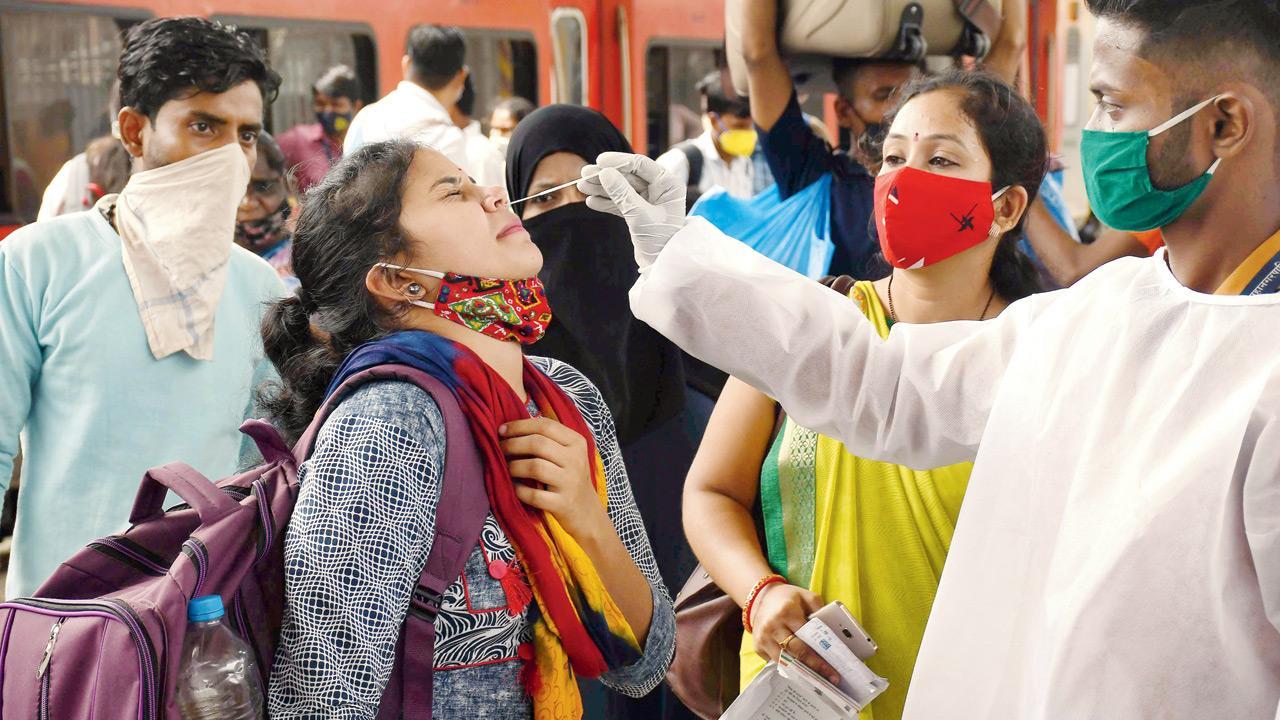BMC says number of daily Covid tests conducted in July has been over 30,000 on an average, barring six days, when number dipped

A BMC health worker collects a swab sample from a passenger at Dadar railway station on Monday. Pic/Ashish Raje
Even as the city’s weekly Covid-19 cases growth rate has gone down from 0.09 per cent to 0.05 per cent since July 1, the highest growth rate was recorded by D ward, which includes Malabar Hill, Peddar Road, Tardeo and Girgaum areas among others. Also, the lowest populated ward in the city – B ward – which includes areas like Masjid and Mohammad Ali Road, has just reported two cases over the past one week. Meanwhile, the number of daily Covid tests conducted in July has been over 30,000 on an average barring six days, when the number dipped.
ADVERTISEMENT
Civic data further reveals that D ward’s doubling rate is 982 days, but it is the fastest in comparison to the remaining 23 wards despite recording about 170 cases over the past one week. The K West ward continues to record a high number of cases and also has the highest number of active cases in the city, but a doubling rate of 1,223 days.
Also read: Covid-19: Active cases rise by 2,766 in 24 hours
Further, the D ward has six sealed buildings out of the total 47 across the city. The ward even has 96 sealed floors and no slums in the containment zone. Civic officials from the ward said that the ward had only 319 active cases and there were less number of sealed buildings so managing and controlling the spread was not tough.
Meanwhile, the BMC said that they were trying to keep the number of daily tests in the city over 30,000 so that the TPR remained stable and didn’t increase suddenly. An official said that even though there were days when the number of tests decreased, the average was not disturbed. Compared to June, July saw a higher number of tests in the city.
 Subscribe today by clicking the link and stay updated with the latest news!" Click here!
Subscribe today by clicking the link and stay updated with the latest news!" Click here!






